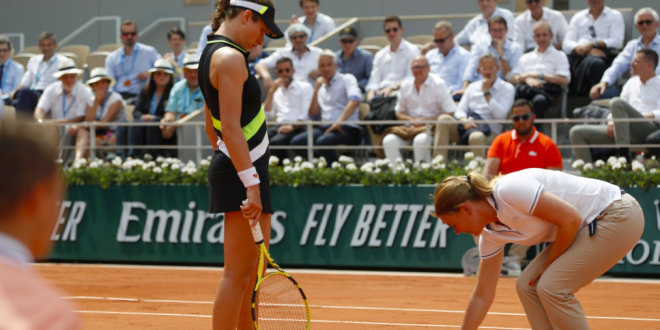
Scott Longley details that stakeholder cooperation, combined with an understanding of big picture dynamics at stake, have seen betting progress on its support of tennis integrity, avoiding a further 2020 banana skin for industry incumbents…
The move announced in December by the International Tennis Federation (ITF) and the Tennis Integrity Unit (TIU) confirming the continued collection and distribution of in-play data on World Tennis Tour events at the $25k level marks a step forward in the cooperation between the sport and the betting sector.
The confirmation of a phased discontinuance of the collection of data on events at the $15k level and below is a welcome de-escalation from the stance previously taken by the Independent Review Panel (IRP) report in December 2018 which had initially recommended a total prohibition on all WTT in-play data collection.
There will be a complete discontinuation of live scoring data at WTT $15k events once all further integrity protection measures have been put in place. At the same time, the ITF will be increasing the number of games at the $25k level.
As Khalid Ali, chief executive of the International Betting Integrity Association (IBIA), said an outright ban would have led to an “undesirable situation” developing of consumers seeking betting on the black market with a “corresponding loss of market oversight and the ability to detect and punish corruption.”
In maintaining betting at the $25k event level, the IBIA suggested the ITF has opted to preserve betting on a product which has proven “popular with consumers”.
Citing data from H2 Gambling Capital, the IBIA said online tennis betting has grown substantially in the past decade, with lower-level tennis stated to have been worth circa $820m in 2017.
The H2 report noted that in the event of a full prohibition on all lower-level tennis, there would have likely been a “three-way switch” with some incremental increase in betting on other forms of tennis, notably ATP tournaments, more pre-match ITF betting but also a continuation of betting on lower-level tennis with other operators working with unofficial data.
David Lampitt, managing director of sports partnerships at Sportradar, said the route taken by the ITF with regard to the reduction in betting coverage was proactive and pragmatic and also consistent with Sportradar’s own approach.
“If you adopt a blanket approach, you risk creating a black market for betting and data and the IRP itself was honest enough to acknowledge that they could not predict the consequences of their recommendations with certainty,” he added.
Regulation rather than prohibition
Lampitt went on to say “that the best way to control and foster transparency in the betting market” is to regulate it in an effective and progressive way. He said the appropriate regulation of betting, rather than attempts at prohibition, were always more likely to succeed, bringing in licensing conditions, transparency, further controls for governing bodies and enhanced consumer protections.
“Globally there is a pattern developing towards a legalised and regulated market as we have seen in markets like the US over the last 18 months, and this should be good news for sports as well as fans,” he added.
Indeed, as the IBIA noted in its third-quarter 2019 integrity review, there has been a “significant downturn” in suspicious betting alerts in the year-to-date with a 40% reduction to 72 alerts compared with 121 in the same period in 2018. The IBIA attributed the fall to a reduction in alerts at ITF level.
The TIU report for 2019 showed the number of overall alerts had fallen to its lowest level since 2015 with the total down 43% to 138 from 264 in 2018.
“We continue to work closely with the ITF and they are now doing more than any other body in tennis to address the integrity challenges and implement the recommendations of the IRP, even though their matches are statistically much less likely to give rise to betting alerts than those at higher levels of tennis” said Lampitt.
“Systematic monitoring started in early 2018 so our Fraud Detection System has been running for nearly two years, during which time we have carefully monitored risk, escalated concerns and removed coverage on a targeted basis. The approach appears to be contributing to positive results with the number of betting alerts in ITF tournaments down by over 60% in 2019 based on the data from the Tennis Integrity Unit.”
ITF President David Haggerty hailed the “comprehensive package of measures”, saying the scale of the integrity measures that were being instituted was “unprecedented”. He concluded: “We are confident that it will deliver real benefits for all participants and will contribute to the trend of reducing corruption risk seen in 2019.”









